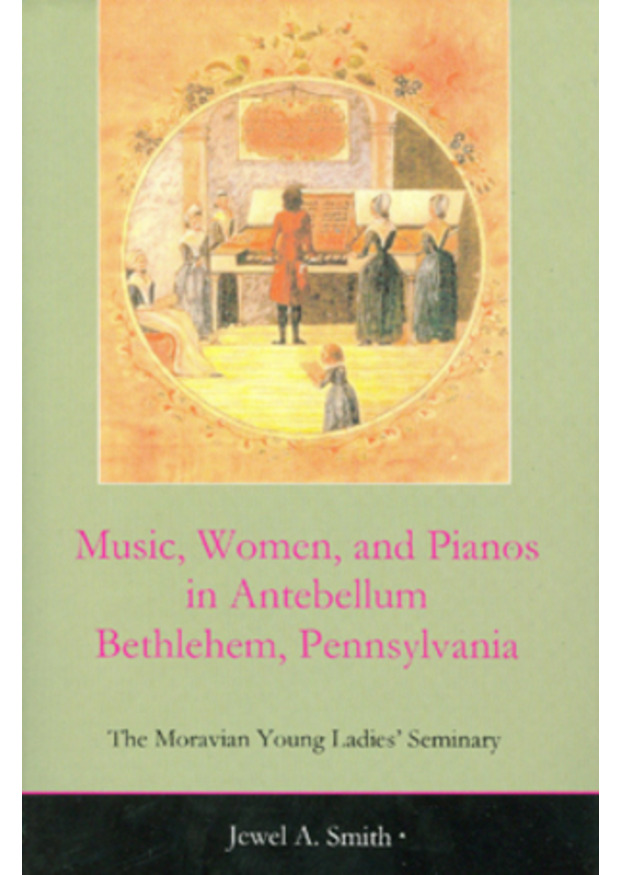The Moravian Young Ladies' Seminary
Music, Women, and Pianos in Antebellum Bethlehem, Pennsylvania: The Moravian Young Ladies' Seminary documents not only the academic and music curricula offered at a distinguished seminary, but the importance of piano study from a sociological viewpoint, music making in a gendered environment, and performance opportunities available to nineteenth-century women. The Seminary attracted students from prominent families on the eastern seaboard, as well as across the nation and from foreign countries. Piano playing was the foremost musical art regularly taught at the Seminary and was regarded as one of the few public accomplishments appropriate for young women. Repertoire included current literature such as character pieces, sets of variations, fantasies, and nocturnes--the same repertoire performed in European salons and on concert stages by artists such as Henri Herz, Sigismond Thalberg, Clara Wieck, and Franz Liszt.
The Seminary purchased mostly American square pianos, but these have largely been overlooked in the instrument's history. Surviving pianos of Bethlehem builders whom the Seminary patronized have been documented and offer a partial history of the American square. An examination of these instruments reveals how the music might have sounded, the responsiveness of the action, and its capabilities--all factors necessary to understanding performance practice issues such as dynamics and tempi of the repertoire studied and played at the Seminary.
A comparison of the Seminary's academic and music curricula with that offered at the Moravian Nazareth Hall for men in nearby Nazareth, Pennsylvania, confirms the Moravians' claim that women and men were equally intelligent; hence, women deserved a comparable education. The Moravians' educational philosophy, "when you educate a woman, you educate an entire family," adumbrated nineteenth-century women's advocates. Such an education prepared women to fulfill their roles at home and in society.
Manuscript and printed music and programs, expense journals, practice records, performance evaluations, class lists, correspondence, newspapers, catalogues of officers, teachers, and students of the Moravian Young Ladies' Seminary and Nazareth Hall, and invoices housed in the Moravian Archives and the Moravian Museum in Bethlehem, comprise the primary sources used in reconstructing the Seminary's musical history. Archival holdings for a family integral to the Seminary provided the necessary material for a close case study.
Aimed at an audience of general readers as well as music scholars, Music, Women, and Pianos offers fresh insights into American upper- and middle-class gender roles, the origins of middle-class instruction (i.e., the proverbial female piano teacher), and the importance of women's contributions to society. This book furnishes the historical, cultural, and educational material necessary for interdisciplinary study drawing on nineteenth-century American history, education, music education, and women's studies.
The text is accompanied by thirty-two illustrations, sixteen musical examples, and four tables.
Reviews:
Music, Women, and Pianos is a thoughtful, thoroughly researched study of the Moravian Young Ladies’ Seminary and its status as a site for the musical education of young women in the early and mid-nineteenth century. Smith provides interesting analyses of the types of music that young women performed, the kinds of instruments that they had at their disposal, and the motivations, ideals, hopes, and anxieties of the schools’ founders, managers, teachers, and students.
--Holly M. Kent, The Pennsylvania Magazine of History and Biography













